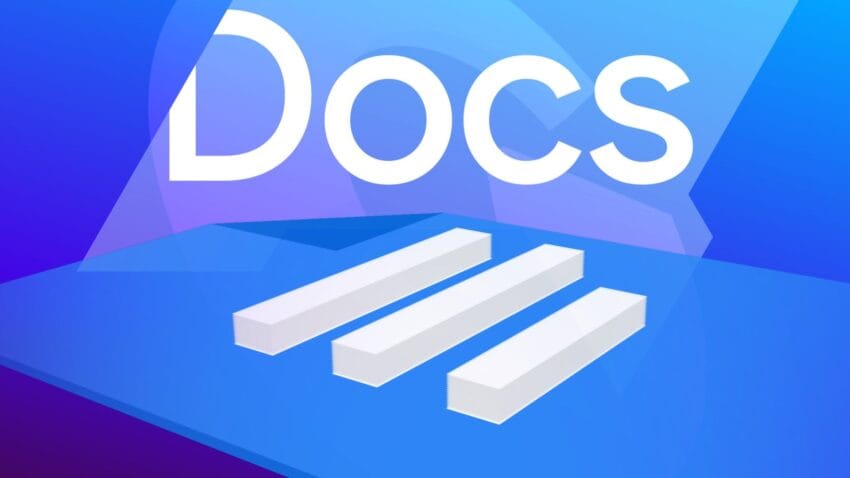
google docs on android might soon uses — Google Docs is poised to enhance its accessibility and usability on Android devices by potentially integrating Gemini for text-to-speech narration..
Google Docs is poised to enhance its accessibility and usability on Android devices by potentially integrating Gemini for text-to-speech narration.
google docs on android might soon uses
Introduction to the New Feature
google docs on android might soon uses: key context and updates inside.
Approximately two weeks ago, Google Docs introduced a significant feature aimed at improving user experience, particularly for those who prefer auditory learning. This update allows the platform to read documents aloud, making it easier for users to absorb large amounts of information without the need to read text visually. The addition of text-to-speech functionality is particularly beneficial for individuals with visual impairments, learning disabilities, or those who simply prefer listening to reading.
The Role of Gemini in Text-to-Speech
Gemini, Google’s advanced AI model, has been designed to enhance various applications across the Google ecosystem. While the specifics of how Gemini will be integrated into Google Docs for text-to-speech are still emerging, its capabilities suggest a promising future for auditory document interaction. Gemini is known for its ability to generate human-like text and understand context, which could significantly improve the quality of the narration provided by Google Docs.
Understanding Gemini’s Capabilities
Gemini is part of a broader trend in artificial intelligence where machine learning models are being trained to understand and generate natural language. This technology has the potential to revolutionize how users interact with text-based applications. Some of the key features of Gemini include:
- Contextual Understanding: Gemini can grasp the context of a document, allowing it to read aloud with appropriate intonation and emphasis, making the listening experience more engaging.
- Natural Language Processing: The model’s advanced natural language processing capabilities enable it to handle complex sentences and varied vocabulary, ensuring that the narration is both accurate and fluid.
- Multi-language Support: Gemini’s design allows for support in multiple languages, catering to a diverse user base and making Google Docs more accessible globally.
Implications for Users
The integration of text-to-speech functionality powered by Gemini could have several implications for users of Google Docs on Android. These implications extend beyond mere convenience, touching on accessibility, productivity, and learning methodologies.
Accessibility Enhancements
For users with disabilities, the ability to listen to documents can be transformative. Text-to-speech technology has long been a vital tool for individuals with visual impairments or reading disabilities such as dyslexia. By incorporating Gemini into Google Docs, Google is taking a significant step toward making its tools more inclusive. This aligns with broader trends in technology where accessibility is becoming a priority.
Boosting Productivity
Listening to documents can also enhance productivity for many users. For instance, professionals who are on the go can absorb information while multitasking, such as during commutes or while performing other tasks. This feature allows users to maximize their time and stay informed without being tethered to their screens. Additionally, auditory learning can help reinforce memory retention, making it easier to recall information later.
Educational Applications
In educational settings, the text-to-speech feature could be a game changer. Students can listen to lecture notes, research papers, or any other documents, which may help them better understand complex topics. Teachers can also utilize this feature to create more engaging learning materials, catering to different learning styles. The ability to listen to text can help students who struggle with traditional reading methods, thereby promoting a more inclusive educational environment.
Stakeholder Reactions
The announcement of the text-to-speech feature has garnered a range of reactions from various stakeholders, including educators, accessibility advocates, and technology experts.
Educators’ Perspectives
Many educators have expressed enthusiasm about the potential of this feature to enhance learning experiences. They believe that the auditory option will cater to diverse learning styles, allowing students to engage with content in a way that suits them best. Some educators have already begun to envision practical applications, such as using the feature for reading assignments or providing auditory feedback on student work.
Accessibility Advocates’ Views
Accessibility advocates have welcomed the news, emphasizing the importance of inclusive technology. They argue that features like text-to-speech are essential for leveling the playing field for individuals with disabilities. Many advocates are hopeful that Google will continue to prioritize accessibility in future updates, ensuring that all users can benefit from its tools.
Technology Experts’ Insights
Technology experts have noted that the integration of Gemini into Google Docs represents a significant advancement in the use of AI for practical applications. They point out that as AI continues to evolve, its ability to enhance user experience will only improve. Experts are particularly interested in how this technology will develop and what other features might be introduced in the future.
Challenges and Considerations
While the potential benefits of the text-to-speech feature are clear, there are also challenges and considerations that Google must address as it rolls out this functionality.
Quality of Narration
One of the primary concerns is the quality of the narration provided by Gemini. Users will expect a high level of accuracy and naturalness in the voice output. If the text-to-speech feature fails to deliver on these fronts, it could lead to frustration and diminish the overall user experience. Continuous improvements and updates will be necessary to ensure that the technology meets user expectations.
User Privacy and Data Security
Another consideration is user privacy and data security. As with any AI-driven feature, there are concerns about how user data will be handled. Google must ensure that it adheres to strict privacy standards and that users feel secure while using the text-to-speech feature. Transparency regarding data usage will be crucial in building trust with users.
Market Competition
The introduction of text-to-speech functionality also places Google Docs in direct competition with other platforms that offer similar features. Companies like Microsoft and Apple have been integrating text-to-speech capabilities into their productivity tools for some time. Google will need to ensure that its offering is competitive in terms of both functionality and user experience to retain its market position.
Conclusion
The potential integration of Gemini for text-to-speech narration in Google Docs on Android represents a significant step forward in enhancing user experience. By making documents accessible through auditory means, Google is not only catering to diverse user needs but also promoting inclusivity in technology. As the feature rolls out, it will be essential for Google to address challenges related to narration quality, user privacy, and market competition. Overall, this development could reshape how users interact with documents, making information more accessible and engaging than ever before.
Source: Original report
Related: More technology coverage
Further reading: related insights.
Further reading: related insights.
Further reading: related insights.
Was this helpful?
Last Modified: September 8, 2025 at 6:38 pm
4 views















